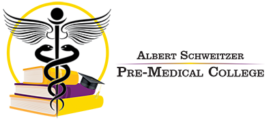Critical Reading

A Critical Reading pre-medical course is designed to help students develop the reading comprehension and critical analysis skills necessary for success in the medical field. The course typically covers a range of topics related to reading, including reading strategies, comprehension, analysis, and interpretation.
Here are some examples of what a Critical Reading pre-medical course may cover:
- Reading strategies: The course covers strategies for reading efficiently and effectively, including skimming, scanning, and active reading.
- Comprehension: The course covers techniques for improving reading comprehension, such as identifying main ideas, summarizing, and paraphrasing.
- Analysis: The course covers techniques for analyzing texts critically, including identifying assumptions, evaluating evidence, and recognizing bias.
- Interpretation: The course covers techniques for interpreting texts in different contexts, such as identifying authorial intent and understanding cultural perspectives.
Critical Reading pre-medical course materials may include textbooks, scientific articles, medical journals, and other healthcare-related texts. The course may also incorporate interactive activities, such as group discussions, debates, and writing assignments, to help students apply their knowledge in real-world situations.
Overall, a Critical Reading pre-medical course is designed to help students develop the reading comprehension and critical analysis skills necessary for success in the medical field. This course can be particularly beneficial for students who plan to pursue careers in medicine, nursing, or other healthcare-related fields, or for healthcare professionals who want to enhance their reading and analysis skills.
